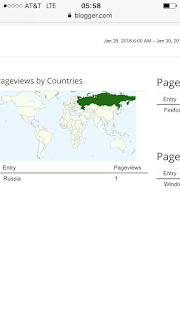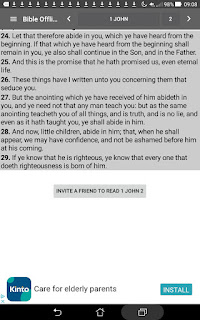SOS! God,Jesus, Holy Bible,Conspiracies, Acoustic Invisibility Cloaking,NSA Spying, Tracking, Spooks,Gang Stalking, PTSD, Hyper Vigilance,,Depression, Autism Spectrum,Humpback Whale N Dolphin Standing's, Sonar Trauma, Lasers, Beams, Radio Waves, Micro Waves, ELF's, Cyber Terrorism, Psychological Warfare, Our World, June 25 1967, The Remnant, LOVE, Owls, Snowflakes, JOY, NOW, Fabry Disease
D.A.D.

FIRE EWE :)
Tuesday, January 30, 2018
USA>:-) YIIIPPPIIIEEE!!! WHOOT+WHOOT ISA(911) Z(8) HUNTED/TARGET/MARK NOW CLOWNS????!!! GOTCHA >:€ GRRRWWWLLL!
SHOCKING TROUBLING ALARMING
NOTHIN COMPARES TO IT BEING
AAA(111) REALITY WITH NOOO ESCAPE.
NOOO ONE TO HELP YOU NOR PROTECT
YOU BC THEY WILL KILL THEM +++
KEEP YOU ALIVE 2 WITNESS
Sunday, January 28, 2018
Saturday, January 27, 2018
HAPPY HAPPPIII HAPI BIRTHDAY Mr B. TeBow! Talk About AAA(111) Spin On This Day>:-) With JOY >"< Love, Ur D.A.D. too
GOD ISA(911) Way Maker
AAA(111) GAME Changer
Born NNN(555) AAA(111) LIL Manger
He Keeps Us From Danger
While Z(8) WORLD Fuels With Anger.
GOD ISA(911) Z(8) ONLY ONE TO
Break Her. Shake Her. Take Her.
We All RRR(999) His!
He ISA(911) OUR Creator!
Thursday, January 25, 2018
Tikkun olam! NOW WON ONE
Tikkun olam
Tikkun olam (Hebrew: תיקון עולם (literally, "repair of the world", alternatively, "construction for eternity") is a concept in Judaism interpreted in Orthodox Judaism as the prospect of overcoming all forms of idolatry,[1] and by other Jewish denominations as an aspiration to behave and act constructively and beneficially.[2]
Documented use of the term dates back to the Mishnaic period. Since medieval times, kabbalistic literature has broadened use of the term. In the modern era, among the post Haskalah Ashkenazi movements, tikkun olam is the idea that Jews bear responsibility not only for their own moral, spiritual, and material welfare, but also for the welfare of society at large.[3] To the ears of contemporary pluralistic Rabbis, the term connotes "the establishment of Godly qualities throughout the world".[2]
HistoryEdit
The phrase tikkun olam is included in the Aleinu, part of Jewish congregationalprayer. The Aleinu beseeches God:
- Hebrew: "לראות מהרה בתפארת עוזך, להעביר גלולים מן הארץ והאלילים כרות יכרתוון לתקן עולם במלכות ש-די"
- Translation: "to speedily see Your mighty splendor, to remove detestable (idolatry) from the land, and the (false) gods will be utterly 'cut off', totahken olam in God's kingdom"
In other words, when all the people of the world abandon false gods and recognize God, the world will have been perfected.
Being that we share a partnership with God, humanity is instructed to take the steps towards improving the state of the world and helping others, which simultaneously brings more honor to God's sovereignty.[citation needed] Some scholars,[who?] however, argue that the phrase in the Aleinu prayer is actually not a valid source for the concept of tikkun olam, and that the confusion arises because[citation needed] of the homonym "l'takken" (spelled differently, לתכן) meaning "to establish" rather than "to fix" or "to repair."[4] There are many sources where the reading of לתכן survives today.[citation needed] This section ofAleinu is fundamentally a prayer for the establishment of God’s kingdom and therefore the reading of לתכן fits much better and makes much more sense. If so, the meaning of the phrase is something like, "to establish God's sovereignty over the world."
The meaning of the term in the Talmud is "to make a decree that makes a difficult obligation easier." It is normally unrelated to the more eschatological usage.
The American Conservative movement's prayer book, Siddur Sim Shalom, published by the Rabbinical Assembly and the United Synagogue of Conservative Judaism, "A Prayer for Our Country" includes the verses, "May citizens of all races and creeds forge a common bond in true harmony to banish all hatred and bigotry" and "uniting all people in peace and freedom and helping them to fulfill the vision of your prophet: 'Nation shall not lift up sword against nation, neither shall they experience war anymore.'" Both lines express wholeheartedly the idea of universal equality, freedom, and peace for all.
The Mi Sheberach prayer blesses all of those who are ill and are in need of healing.
The 1975 New Union, American Reform movement's prayer book, Gates of Prayer, includes the text "You [Lord] have taught us to uphold the falling, to heal the sick, to free the captive, to comfort all who suffer pain" (383).[clarification needed]
Lurianic KabbalahEdit
Lurianic Kabbalah dwells on the role of prayer and ritual in tikkun olam. According to this vision of the world, God contracted part of God's self into vessels of light—partly limiting himself—to create the world. These vessels shattered and their shards became sparks of light trapped within the material of creation. Prayer, especially contemplation of various aspects of the divinity (sephirot), releases these sparks of God's self and allows them to reunite with God's essence, bringing them closer to a fixed world. According to Moshe Chaim Luzzatto, in his book Derech Hashem, the physical world is connected to spiritual realms above that influence the physical world, and furthermore, Jews have the ability, through physical deeds and free will, to direct and control these spiritual forces. God's desire in creation was that God's creations ultimately will recognize God's unity and overcome evil; this will constitute the perfection (tikkun) of creation. While the Jews have the Torah now and are aware of God's unity, some believe that when all of humanity recognizes this fact, the rectification will be complete.[5] In recent years Jewish thinkers and activists have used Lurianic Kabbalah to elevate the full range of ethical and ritualmitzvot into acts of tikkun olam. These Jews believe that not only does prayer lift up divine sparks, but so do all of the mitzvot, including those traditionally understood as ethical. The application of the Lurianic vision to improving the world can be seen in Jewish blogs,[6] High Holiday sermons[7][8] and on-line Jewish learning resource centers.[9][better source needed]
The association between the Lurianic conception of tikkun olam and ethical action assigns an ultimate significance to even small acts of kindness and small improvements of social policy. However, this association can be a double-edged sword and has begun to trigger critique even within the social justice community.[citation needed] On one hand, seeing each action as raising a divine spark can motivate people to action by giving them hope that their actions will have long-term value. On the other hand, if this is done in a manner that separates the concept of tikkun olam from its other meanings as found in rabbinic literature and the Aleinu prayer, the risk of privileging actions that have no real significance and represent personal agendas is introduced.[2]
The application of Lurianic Kabbalah to ethical mitzvot and social action is particularly striking because Lurianic Kabbalah saw itself as repairing God and the world to come rather than this world and its social relations. Author Lawrence Fine points to two features of Lurianic Kabbalah that have made it adaptable to ethical mitzvot and social action. First, he points out that a generation recovering from the tragedy of the Holocaust resonates with the imagery of shattered vessels. Second, both Lurianic Kabbalah and ethical understandings of tikkun olam emphasize the role of human responsibility and action.[10]
Performance of mitzvotEdit
Jews believe that performing of ritual mitzvot (good deeds, commandments, connections, or religious obligations) is a means of tikkun olam, helping to perfect the world, and that the performance of more mitzvot will hasten the coming of the Messiah and the Messianic Age. This belief dates back at least to the early Talmudic period. According to Rabbi Yochanan, quoting Rabbi Shim'on bar Yochai, the Jewish people will be redeemed when every Jew observes Shabbat (the Sabbath) twice in all its details. This suggests that tikkun olam will prove successful with the coming of the Messiah and the Messianic Age.[11]
Observing ShabbatEdit
Some[who?] explain the power of Shabbat by its effect on the other six days of the week and their role in moving society towards the Messianic Age. Shabbat helps bring about the Messianic Age because Shabbat rest energizes Jews to work harder to bring the Messianic Age nearer during the six working days of the week. Because the experience of Shabbat gives one a foretaste of the Messianic Age,[citation needed] observance of Shabbat also helps Jews renew their commitment to bring about a world where love and mercy will reign.[clarification needed] This relates to the section on the role of mitzvot (above) that suggests that tikkun olam will prove successful with the coming of the Messiah and the Messianic Age.[12]
Subscribe to:
Comments (Atom)



















